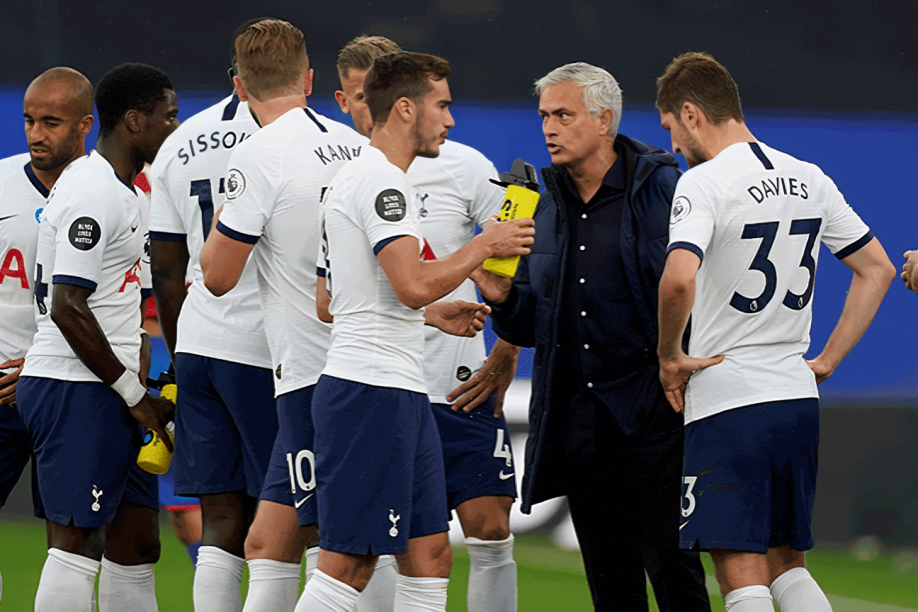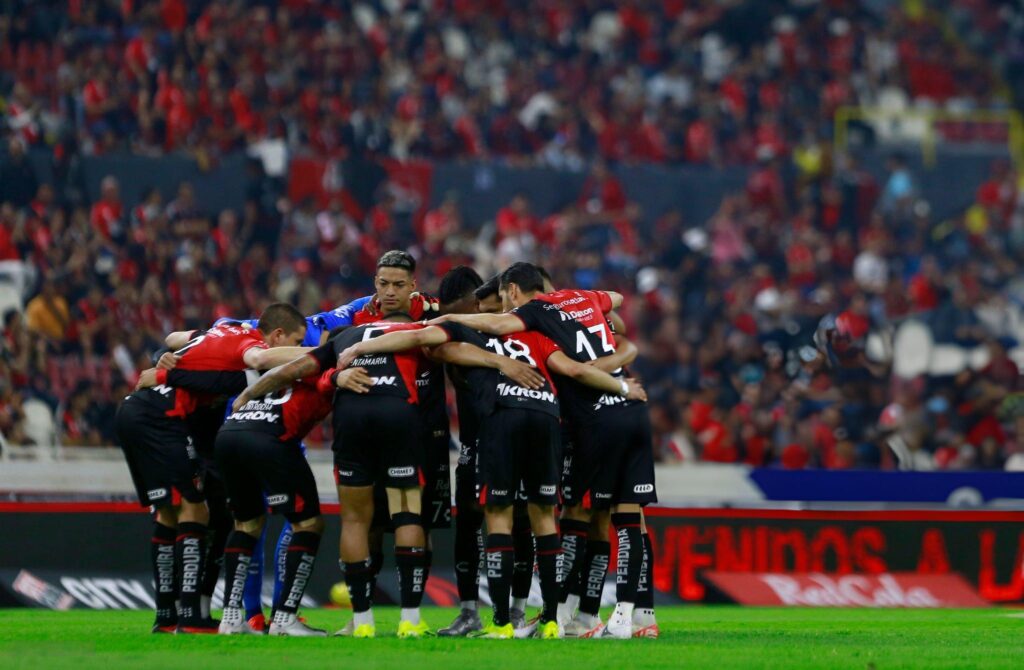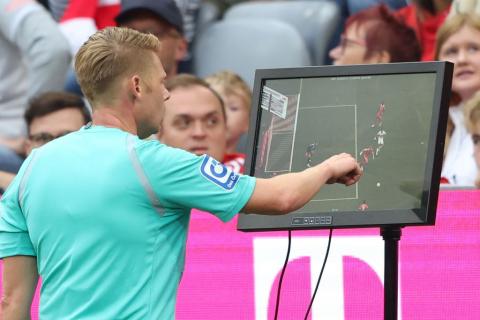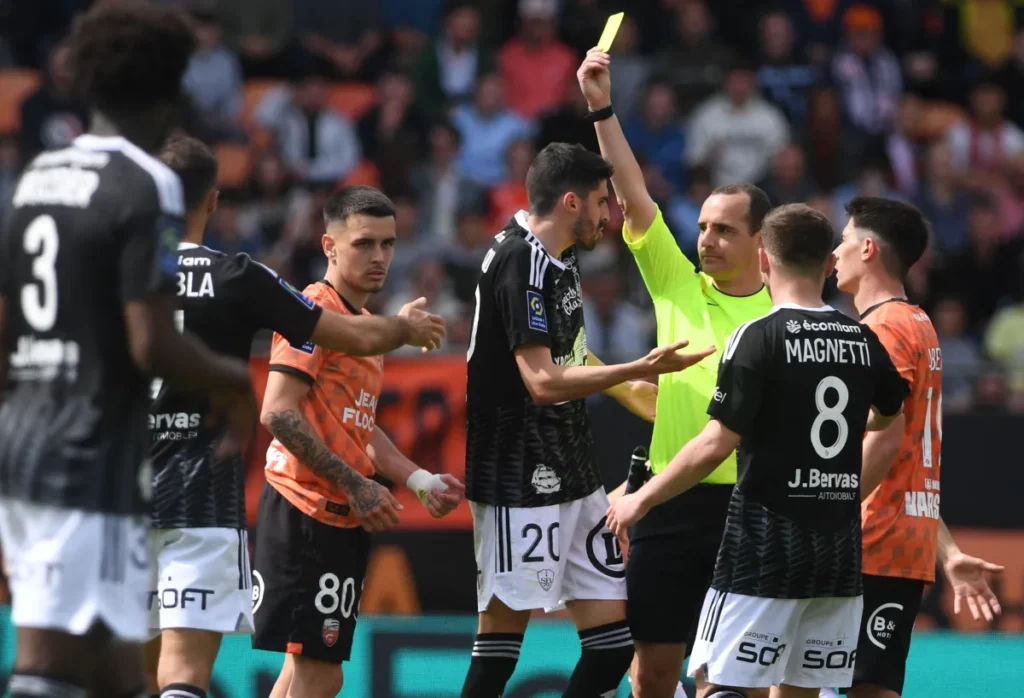Communication breakdowns on the pitch can turn a well-drilled team into disarray, leaving fans puzzled and frustrated. Effective communication in football is the bedrock that helps teams execute complex plays with precision.
Our article delves into strategies to enhance this vital skill set, empowering teams to perform at their peak. Discover why talking matters in football.
The Importance of Communication in Football

Moving from general concepts to the specifics, we can see how vital communication skills are in football. A midfield player must constantly communicate with teammates through gestures and body language to maintain an effective attack or defence.
This non-verbal communication allows for quick decision-making on the pitch where every second counts.
On another note, during training sessions, clear verbal cues help in polishing tactics and ensuring that all players understand their roles within complex game plans. It is teamwork that wins matches, and this is polished through countless hours of discourse among players and coaches alike.
Each huddle is a chance to solve problems before they manifest on the field, proving that good communication lies at the heart of great footballing sides.
The Role of Communication in Football

Communication plays a crucial role in football, as it allows players to coordinate movements and positions on the field, aids in player and team development, and facilitates practical arrangements within football clubs.
Effective communication can enhance overall team dynamics and lead to better game strategies, ultimately improving player performance.
Coordination of movements and positions
In the heat of a match, every second counts and players must move as one cohesive unit. Coordinating movements and positions is where in-game communication shines brightest. Defenders signal to each other to form an impenetrable line, while midfielders convey which spaces need filling or when to launch into an attacking position.
Smooth eye movements are crucial; they enable players to track their teammates and opponents without losing sight of the ball.
The signal-caller’s voice echoes across the pitch, guiding the team with shouts that cut through the noise of cheering fans. This orchestration on the field requires both knowledge and feeling, ensuring that each movement is purposeful and contributes to effective problem-solving during play.
As we delve deeper into understanding player development and how solid communication foundations contribute significantly to this aspect, it becomes clear why football clubs prioritise these skills in training sessions.
Development of players and team
Effective communication on the pitch goes beyond just coordinating movements; it forges stronger bonds between players, enhancing their development and teamwork. Coaches use verbal instructions to establish a game plan and guide players towards better connectivity with each other.
This shared discourse community within a team cultivates familiarity, allowing quick decisions on the field that can be crucial to winning matches.
Strong communication channels between teammates build trust and encourage mutual support, leading to more cohesive playing units. As individual skills are honed through these interactions, entire teams evolve strategically and tactically.
Football clubs benefit greatly from nurturing a culture of open dialogue where every player’s thoughts contribute to the squad’s collective success.
Practical arrangements of football clubs
Football clubs face a multitude of practical arrangements that require clear communication to function smoothly. Crisis communication becomes critical, particularly when clubs encounter unexpected challenges or crises.
Utilising media as a tool for managing these situations is vital; it’s how information gets shared with fans and stakeholders promptly and effectively. A well-communicated message can calm tensions, provide clarity, and maintain the club’s reputation during tough times.
Managing an international football club involves juggling numerous opportunities along with everyday logistical details. This means crafting effective communication strategies that resonate across different cultures and languages is non-negotiable.
It’s about more than just coordinating movements on the pitch; it extends to every aspect of the organisation from arranging travel logistics for teams to ensuring all staff are kept informed about club developments.
These behind-the-scenes efforts enable players to focus solely on their performance without worrying about off-field distractions.
Also Read: What Do Football Scouts Look For in a Midfielder?
Types of Communication in Football

On-field communication involves verbal and non-verbal signals between players during a match, while off-field communication includes team meetings, tactical discussions, and other team-related interactions.
Training communication encompasses feedback from coaches and players to improve performance. Read on to discover the benefits of effective communication in football!
On-field communication
Players shout instructions and warnings to each other, guiding teammates on where to move, when to pass, or how to position themselves. This vocal orchestration keeps everyone aligned and ready for whatever the game throws their way.
Quick shouts of “Man on!” or “Time!” can make all the difference between maintaining possession and losing it. It’s a dynamic exchange that requires clarity, quick thinking, and sharp listening skills.
Hand signals also play a crucial role; they offer silent cues that are especially useful in a noisy stadium filled with cheering fans. A raised arm might signal a long throw-in is coming or dictate the type of corner kick planned.
These non-verbal messages are vital during intense moments where words get lost in the roar of the crowd. Good communication ensures all team members work as one unit, strengthening their ability to make decisions swiftly and confidently under pressure.
Off-field communication
Moving beyond the shouts and calls that dominate the pitch, off-field communication is equally pivotal in crafting a successful football team. Managers and coaches must convey game plans effectively during meetings, ensuring every player understands their role within the strategy.
Heartfelt speeches can motivate teams before stepping onto the field, fuelling them with determination to overcome obstacles.
Social media also plays an instrumental role in shaping perceptions and fan engagement. Clubs use these platforms to announce news, interact with fans, and build community support.
Players share moments from their personal lives, fostering stronger connections with supporters. This modern form of communications has transformed how athletes relate with admirers worldwide while shaping public narratives about clubs and individuals alike.
Training communication
Training communication goes beyond passing messages during matches; it forms the backbone of a football team’s success. Coaches use targeted training sessions to instil effective communication habits in players, fostering an environment where every member understands their role and responsibilities.
The way a coach articulates strategy and feedback can make or break a player’s confidence and performance on the pitch.
Great communicators inspire teams to greater heights, ensuring that each session is not just about physical prowess but also about building shared knowledge mentioned in studies like those exploring under-18 and under-21 youth training in football.
These sessions become dynamic classrooms where future victories are shaped through clear instructions, constructive criticism and mutual respect among players—each element contributing significantly to the overall development of both individual skills and team cohesion.
With these foundations set during training, let us consider how on-field communication unfolds during the heat of competition.
Also Read: Why Are Number 7 and 10 So Special in Football?
Benefits of Effective Communication in Football

Effective communication in football leads to improved team dynamics, better game strategies, and enhanced player performance. It plays a crucial role in fostering a cohesive and coordinated team environment, ultimately leading to success on the field.
Improved team dynamics
Positive communication among team members contributes significantly to improved team dynamics. When players effectively communicate on and off the field, it fosters a sense of unity, trust, and understanding within the team.
Clear and direct communication helps in coordinating movements, aligning strategies, and making split-second decisions during gameplay. This cohesive approach not only enhances teamwork but also promotes better game strategies and player performance.
Moreover, when players share knowledge through verbal communication, it positively impacts overall motivation and improves team function.
Better game strategies
Enhancing communication on the field leads to better game strategies. By conveying tactics and crucial information effectively, players can coordinate their movements and positions with precision.
This allows for quick adjustments, helping teams adapt to the changing dynamics of a match and stay ahead of their opponents.
Players who communicate efficiently can develop strategic plays in real-time, taking advantage of opportunities as they arise during the game. Additionally, effective communication enables coaches to provide timely guidance from the sidelines, ensuring that the team is always well-prepared to execute winning strategies throughout the match.
Enhanced player performance
Effective communication in football plays a pivotal role in enhancing player performance. Clear and concise communication on the field enables players to coordinate movements and positions effectively, leading to improved gameplay.
Moreover, positive communication fosters a supportive environment that can significantly boost player motivation and concentration, ultimately contributing to enhanced individual and team performance.
Furthermore, integrating effective communication strategies into training sessions can lead to better game strategies and decision-making on the field. This not only improves overall team dynamics but also encourages players to perform at their best potential, thereby elevating the overall team’s performance level.
Also Read: Why Is Passing So Important in Football? The Key to Winning Matches
Strategies for Improving Communication Skills in Football
Developing effective communication skills in football requires tailored strategies that cater to the unique dynamics of the sport. One approach is to link football explanations to something players can relate to based on their age and development stage.
This ensures that the information resonates with them, making it more likely for players to absorb and apply what they’ve learned. Additionally, understanding the player and their communication style is crucial for improving overall team communication.
By taking responsibility for communication and focusing on the receiver first, players can adapt their approach accordingly, enhancing mutual understanding within the team.
Positive communication in football is essential and should be applied with respect. This helps athletes develop trust and respect for their teammates, contributing towards a cohesive team environment where individuals feel valued and heard.
Moreover, shared knowledge and verbal communication are vital components of effective team actions in football. Encouraging open dialogue among players fosters an environment where ideas are freely exchanged, enabling better coordination on-field while also promoting a supportive off-field relationship amongst teammates.
Conclusion
Effective communication is crucial in football for coordinating movements and strategies on the field. Players and coaches must communicate effectively to anticipate each other’s actions, enhancing team performance.
Clear communication fosters trust and respect among team members, leading to improved teamwork and morale. Developing strong communication skills is essential for success in football, as it enables players to understand each other’s perspectives and work cohesively towards a common goal.
Discover more about the nuances of the game by exploring why goalkeepers wear gloves and its impact on football’s communication flow.


